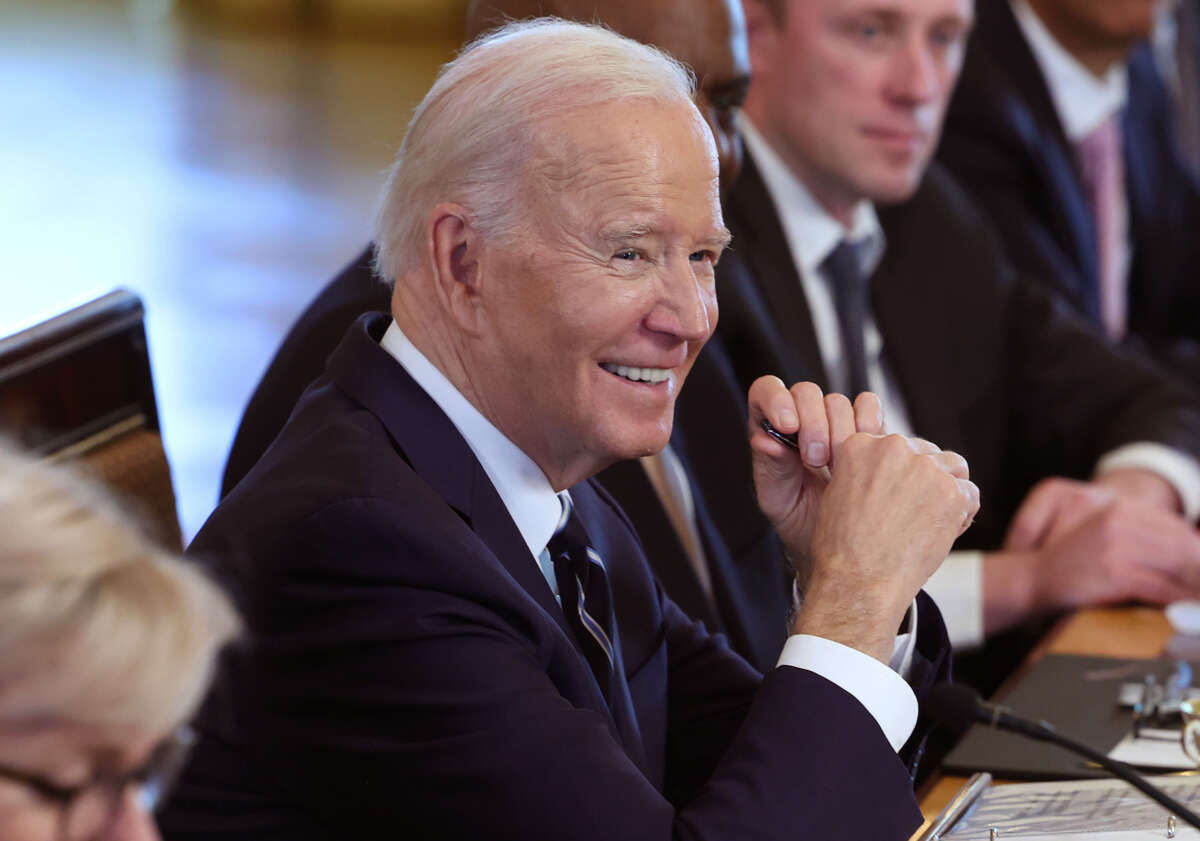Honest, paywall-free news is rare. Please support our boldly independent journalism with a donation of any size.
President Joe Biden has good news for public service workers with outstanding student loan debt. He’s slated to announce Thursday that he will forgive roughly $6 billion for 78,000 borrowers such as teachers, nurses or social workers enrolled in the Public Service Loan Forgiveness (PSLF) program, a track designed for employees of government agencies or nonprofit organizations.
This wave of relief brings the Biden administration’s total loan forgiveness to $144 billion for approximately 4 million borrowers. Just a month ago, Biden announced that he would forgive $1.2 billion for 150,000 borrowers eligible for a special benefit in the new affordable repayment plan his administration developed.
The recent offers of debt relief come with the presidential election just over seven months away. Borrowers have said that student debt has prevented them from homeownership, hurt their credit and hampered their plans to start families, among other milestones.
“For too long, our nation’s teachers, nurses, social workers, firefighters and other public servants faced logistical troubles and trap doors when they tried to access the debt relief they were entitled to under the law,” Secretary of Education Miguel Cardona said in a statement. “With this announcement, the Biden-Harris administration is showing how we’re taking further steps not only to fix those trap doors, but also to expand opportunity to many more Americans.”
Before Biden’s presidency, just 7,000 borrowers had all their student debt relieved under the PSLF, prompting debt cancellation advocates to declare that the program and the student loan system generally were broken. The Biden administration has made adjustments to the program. Since then, up to Thursday’s announcement, more than 871,000 borrowers enrolled in PSLF had their loan debt canceled.
The public service workers selected to get relief should expect to receive emails as early as next week informing them of this development. Also, about 380,000 other PSLF borrowers who are not yet eligible for forgiveness will get emails letting them know that they will qualify for cancellation within one or two years if they stay employed in public service jobs.
“The Public Service Loan Forgiveness Program is an important way to bring more Americans into public service and help them get out from under the burden of student loan debt,” Biden’s email to these workers states. “But for too long, the program failed to live up to its commitments — and public service workers like you never got the relief you are entitled to under the law because of errors and administrative failures. I vowed to fix that, and I’m proud that my administration has delivered on that promise.”
While campaigning for president, Biden promised to address the student debt crisis that now tops $1.7 trillion and the soaring costs of obtaining a higher education. His administration has raised the maximum amount of the Pell grant, a need-based financial award for college, to $7,395 during the 2023-24 school year from $6,895 the prior school year. Earlier this month, the Biden administration proposed increasing the grant by an additional 10 percent.
During his State of the Union address on March 7, Biden highlighted these efforts and others to forgive student debt and improve the college experience.
“Let’s continue increasing the Pell grants to working- and middle-class families and increase record investments in HBCUs [historically Black colleges and universities], minority-serving institutions, including Hispanic institutions,” he said then. “I was told I couldn’t universally just change the way in which you dealt with student loans. I fixed two student loan programs that already existed to reduce the burden of student debt for nearly 4 million Americans including nurses, firefighters and public servants.”
Recent polls indicate that Biden’s approval rating hovers in the high 30s and low 40s and that former President Donald Trump, the presumptive Republican nominee, has a narrow lead over him. Trump opposed Biden’s plan to broadly forgive up to $20,000 in student debt for borrowers earning under $125,000 annually. The Supreme Court blocked that plan in June.
Holding Trump accountable for his illegal war on Iran
The devastating American and Israeli attacks have killed hundreds of Iranians, and the death toll continues to rise.
As independent media, what we do next matters a lot. It’s up to us to report the truth, demand accountability, and reckon with the consequences of U.S. militarism at this cataclysmic historical moment.
Trump may be an authoritarian, but he is not entirely invulnerable, nor are the elected officials who have given him pass after pass. We cannot let him believe for a second longer that he can get away with something this wildly illegal or recklessly dangerous without accountability.
We ask for your support as we carry out our media resistance to unchecked militarism. Please make a tax-deductible one-time or monthly donation to Truthout.
